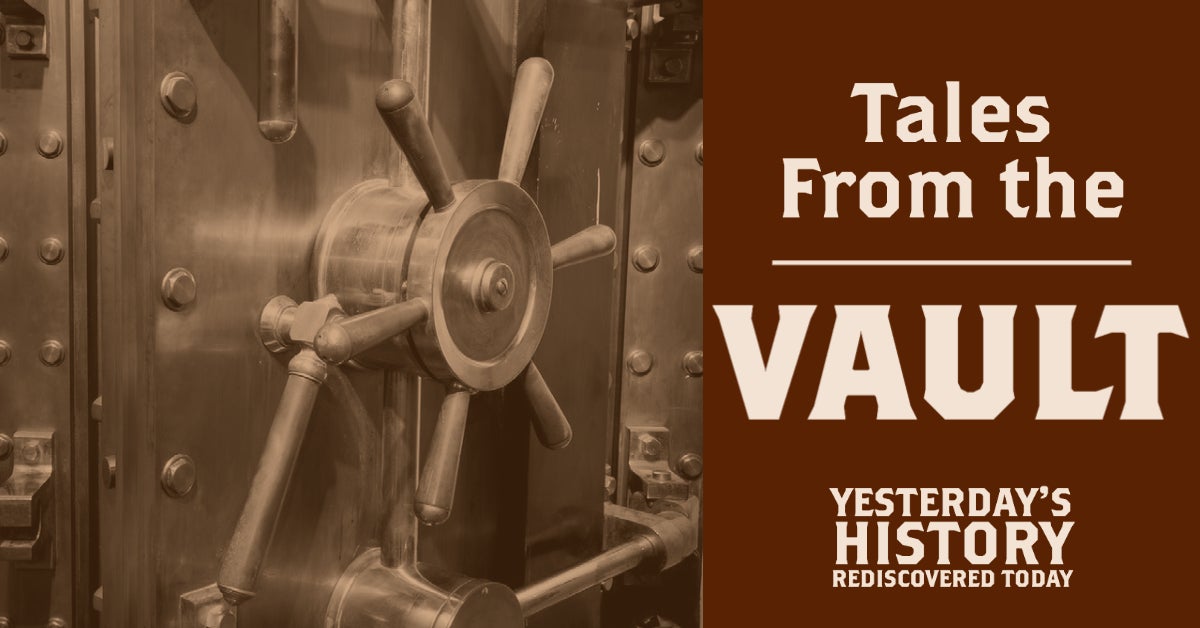FROM THE VAULT: Old Court House clock has had storied life
Published 8:00 am Saturday, May 27, 2023
By the Late Gordon Cotton | Originally published in The Vicksburg Post on June 30, 2013
The original works, installed in the tower in 1859 by Max Kuner, a jeweler who lived only a block from the courthouse, were made in Boston. After the tornado in 1953, they were removed and an electrical device was installed. The original works, looking like a Rube Goldberg invention, are on display in the museum.
The electric works, which didn’t take up as much space as a shoebox, ran for a number of years, then quit. The late Francis Hanes got the clock going again for a while and then it quit again.
The late Grady Leist and his wife, Martha, took on the clock as a project. The parts Grady couldn’t repair or find, he made… and the clock, with a refurbished face and new works, ran until recently when parts wore out. There’s a jar in the museum entrance for donations on repairs to the clock.
In the years it didn’t run, the bell was tolled on special occasions by hand — on the election of Ronald Reagan as president, upon the death of the museum’s founder, Eva W. Davis, upon the inauguration of Kirk Fordice as governor, and on the 200th anniversary of the death of President Jefferson Davis.
Eva Davis began her daily radio broadcast from the museum in the 1950s with “As the sun comes over Vicksburg, on time with the courthouse clock…”
Well, they’re out of sync… and museum director Bubba Bolm thinks it’s the clock, not the sun.
On June 2, 1864, a Union newspaper in New Orleans, The Era, published the following story:
“Vicksburg Courthouse Clock General Andrew Jackson Smith and the Old Town Clock at Vicksburg Reminiscence of the Famous Siege.”
The Washington correspondent of the Cincinnati “Commercial,” in noticing the recent promotion (Spring of 1864) to a Major Generalship of brave old Andrew Jackson Smith, relates the subjoined incident of the siege of Vicksburg:
Smith commanded a division in McClernand’s (13th) corps. His line was directly in the rear of the center of the besieged city, and the Court House was in full view of his headquarters. An artillery officer entered the General’s tent one morning, after a very severe cannonading along our lines, to request permission to go to the Yazoo River, where our fleet of steamboats was lying.
“What time is it?” asked the General, who had not yet left his cot. “It’s 10 minutes to 7,” said the artilleryman.
“How do you know it’s that late?” inquired the General, a little vexed at the idea of having slumbered so long.
“I can see by the town clock,” replied the artilleryman, referring to the clock of the Vicksburg Courthouse, which I may remark just here furnished the time of day to both armies for more than six weeks.
“Town hell and damnation!” exclaimed the General, jumping out of bed. “Have you been shooting all morning, without hitting that old clock?”
“Yes, sir. We couldn’t hit it. Tried our best, but couldn’t make the shot.”
“All right then. Men who can’t hit such a good mark as that can’t get any leave of absence from me. You can’t get to go to the river today.”
Thousands of shots were aimed at the clock to my certain knowledge. It was the target for at least 20 batteries every day, but was never struck, and is keeping good time to this day, I believe.
On entering Vicksburg on the Fourth of July, my curiosity led me to go to the cupola of the Courthouse and see how near the old ticker had come to annihilation. The pillars above it, below it and on each side had been struck and shattered. A large hole had been made in a wall within a foot of it, and fragments of stone and plaster covered the box containing its works.
Not less than 100 shots had struck within 10 feet of it — but it had survived them all and while Pemberton wrote his lying bulletins in his subterranean headquarters every day, it stood fearlessly at its post telling the truth, and chiming out the hours from day to day, and from week to week.
I could not help entertaining a feeling of profound respect for the old clock, and I am proud to have it to say that I was the means of saving it from falling victim to the vandalism of one of our own soldiers the day after the evacuation of the city. I saw a man approach it with a huge piece of granite in his hand, and heard him mutter, “D-n you, you dodged whenever I fired that Parrott gun at you, and now I am going to try you at close quarters.”
I remonstrated against this proposed ungenerous treatment of a gallant foe, and the soldier dropped his missile and walked on.
Gordon Cotton (1936-2021) was a Vicksburg and Warren County icon who spent a lifetime learning and sharing history.






